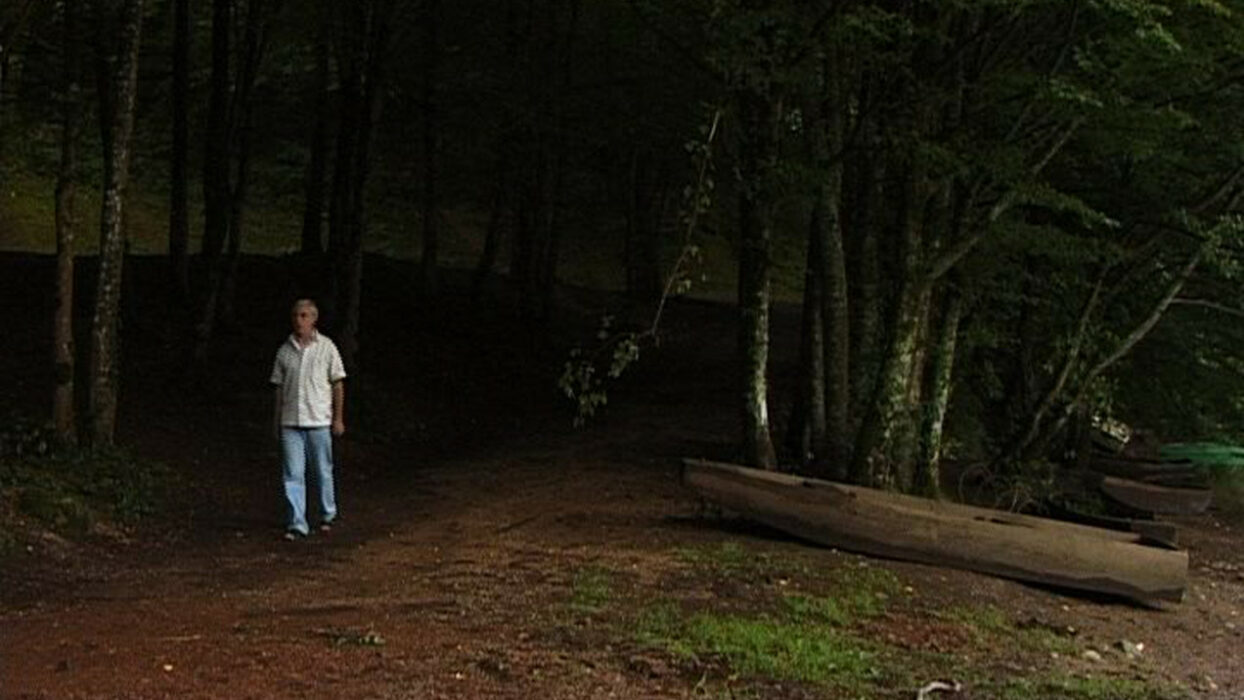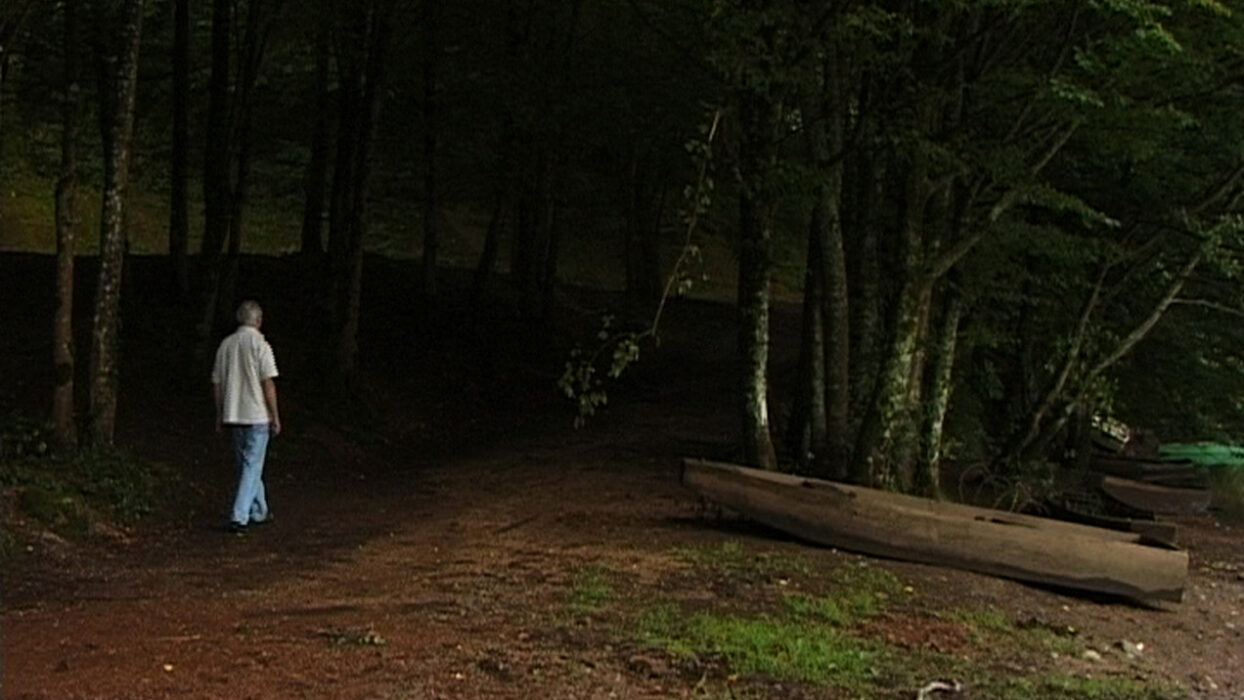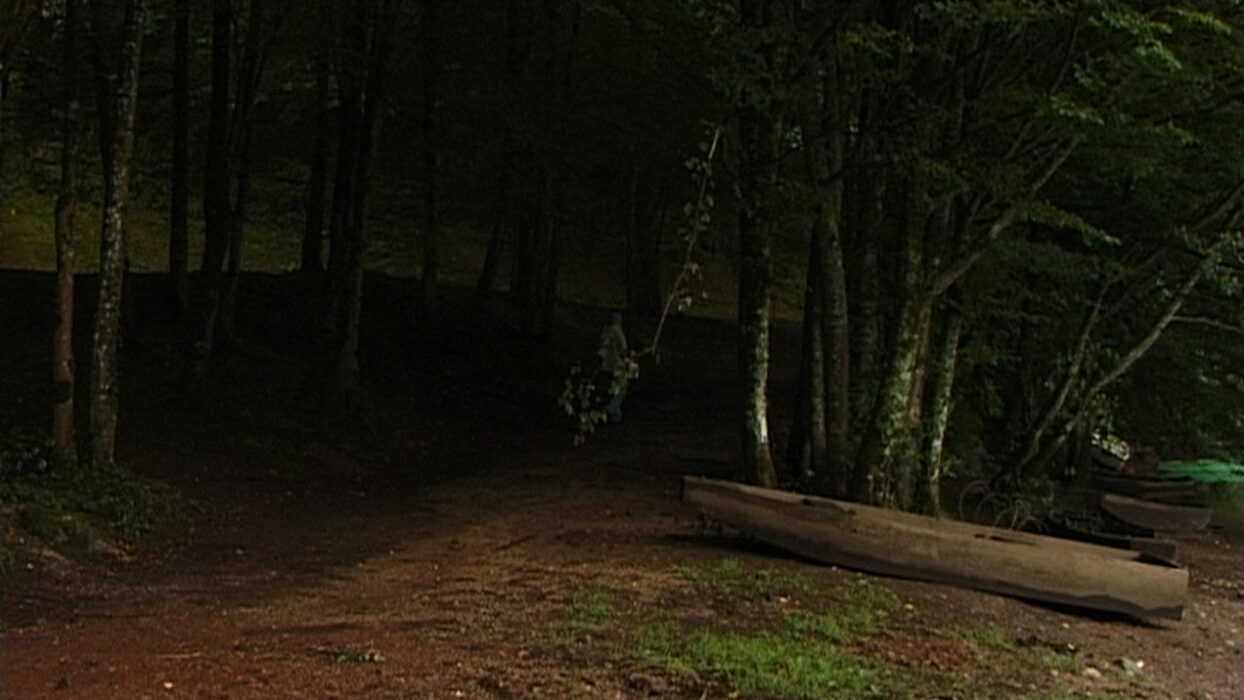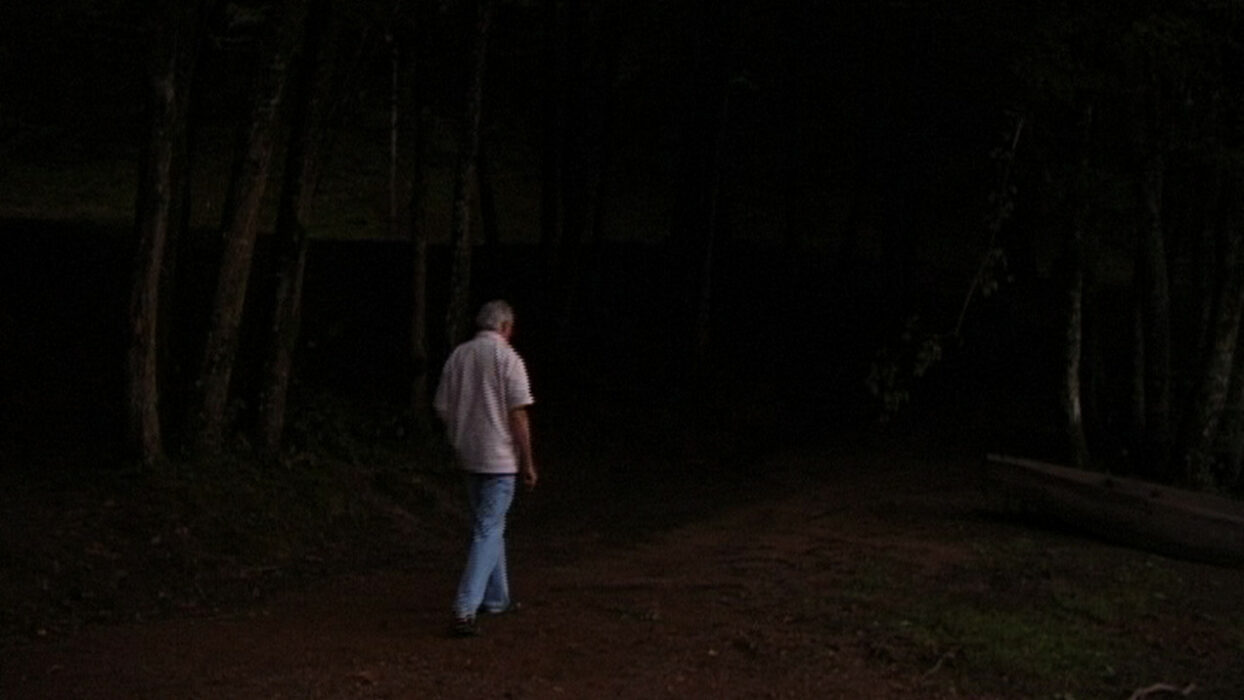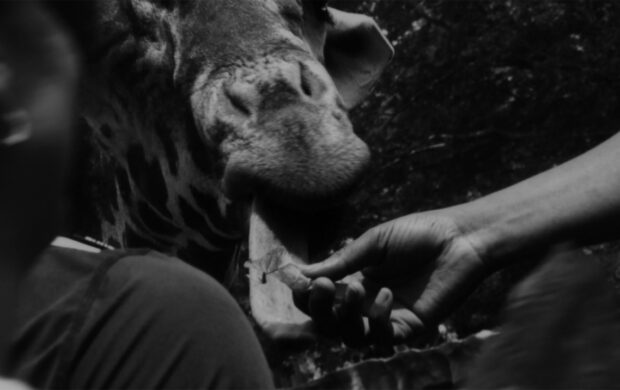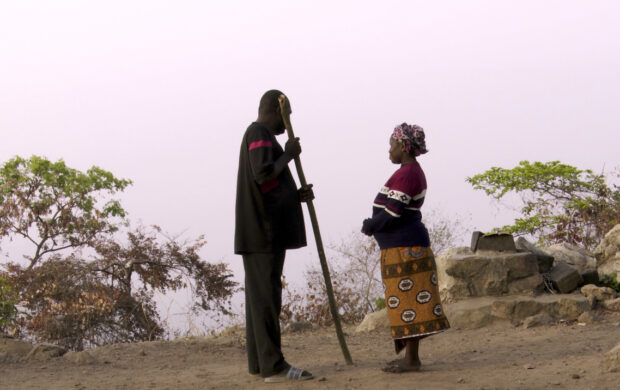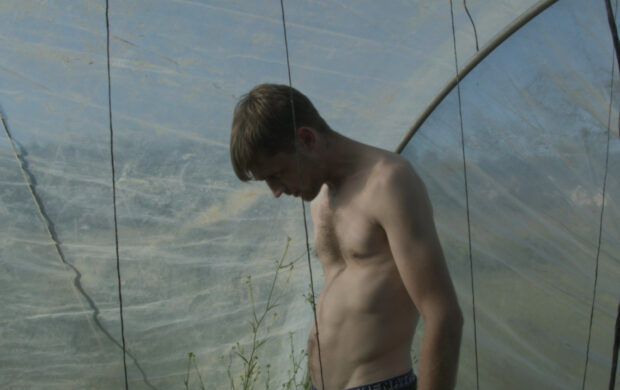Où sont tous mes amants ?
- 2023
- France
- 6 min
Where are all my lovers
All those who loved me so
Back when I was beautiful
Farewell the infidels
They are I don’t know where
At other meetings
(Fréhel, 1935)
Another catchy tune. Souvenir d’Athènes, Jean-Claude Rousseau’s previous film, latched on to a Greek summer song winding out of a record’s worn-out grooves. Here, Rousseau turns to Fréhel, whose songs we last heard on screen in the films of Jean Eustache. Where have all her lovers gone, muses the singer, who feels old and laments the past. Except we never actually hear the song, at least not directly. Instead, we hear a tune whistled by a nameless stroller, the film’s only protagonist. A sliver of a tune, really, dipping and soaring as the stroller walks twice into a wood and back. For all their economical facture, Rousseau’s films leave nothing lacking. They conjure up a world out of a calligraphy of mundane acts (the man walks in and out of the woods in the same way that previous protagonists spent time in hotel rooms), a handful of sounds (the sound of gravel under the man’s feet intertwines with the whistled tune; a couple of birds endowing the woods with a sense of depth), and a hollowed-out image (the edge of the woods placing the viewer on the edge of a hole which contains all the images that could be, like the dark mouth of La Vallée close). Twice engulfed by the woods, Fréhel’s tune doesn’t need lyrics to make its obvious melancholy felt: it pulsates with moving intensity through the world shaped by this exquisite new exercise in minimalism, somewhere in between Michael Snow and Marcel Pagnol.
Jérôme Momcilovic
- Production : Jean-Claude Rousseau
- Photography : Jean-Claude Rousseau
- Sound : Jean-Claude Rousseau
- Editing : Jean-Claude Rousseau
- Copy contact : Jean-Claude Rousseau - jeanclauderousseau@laposte.net
